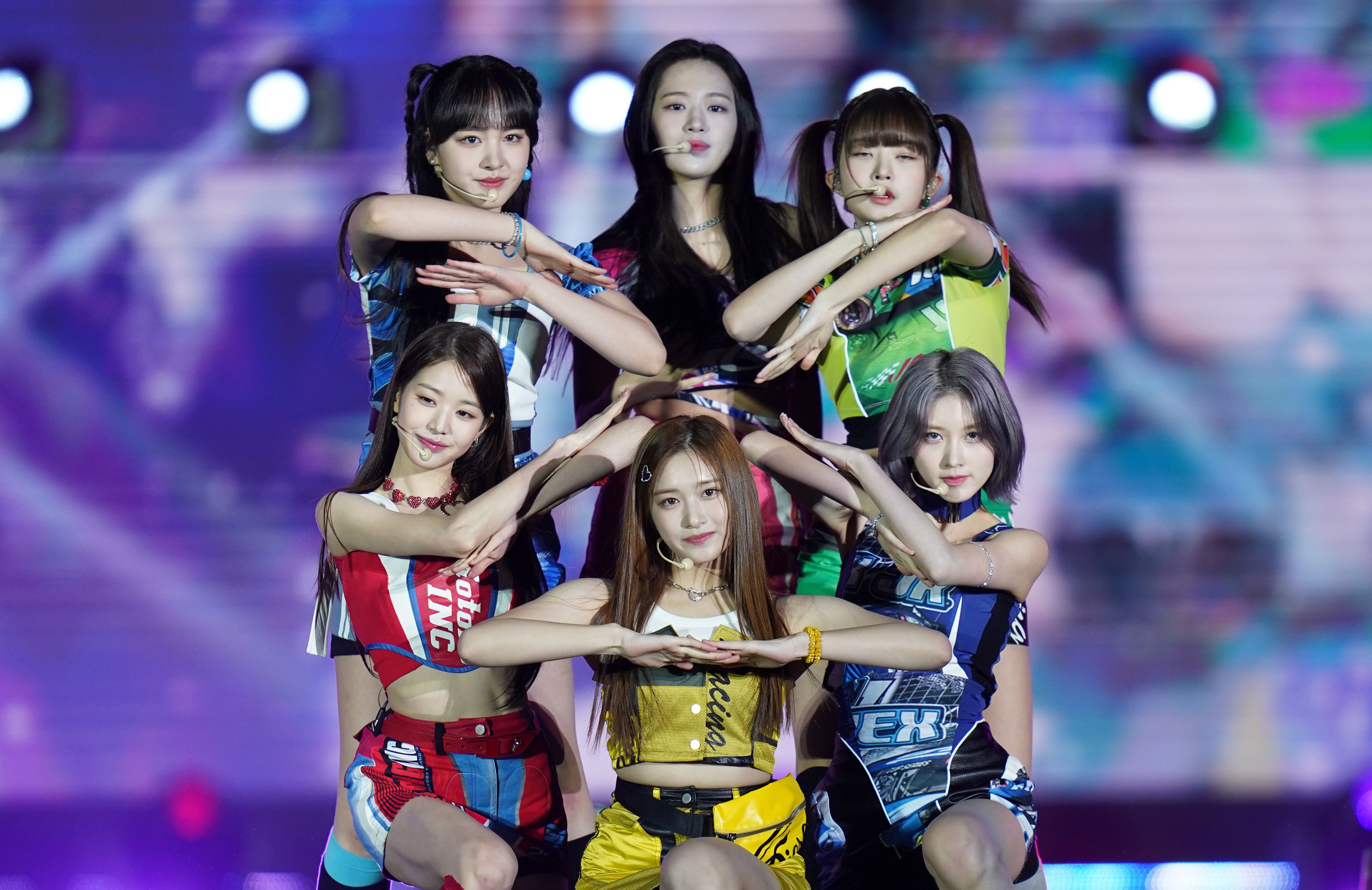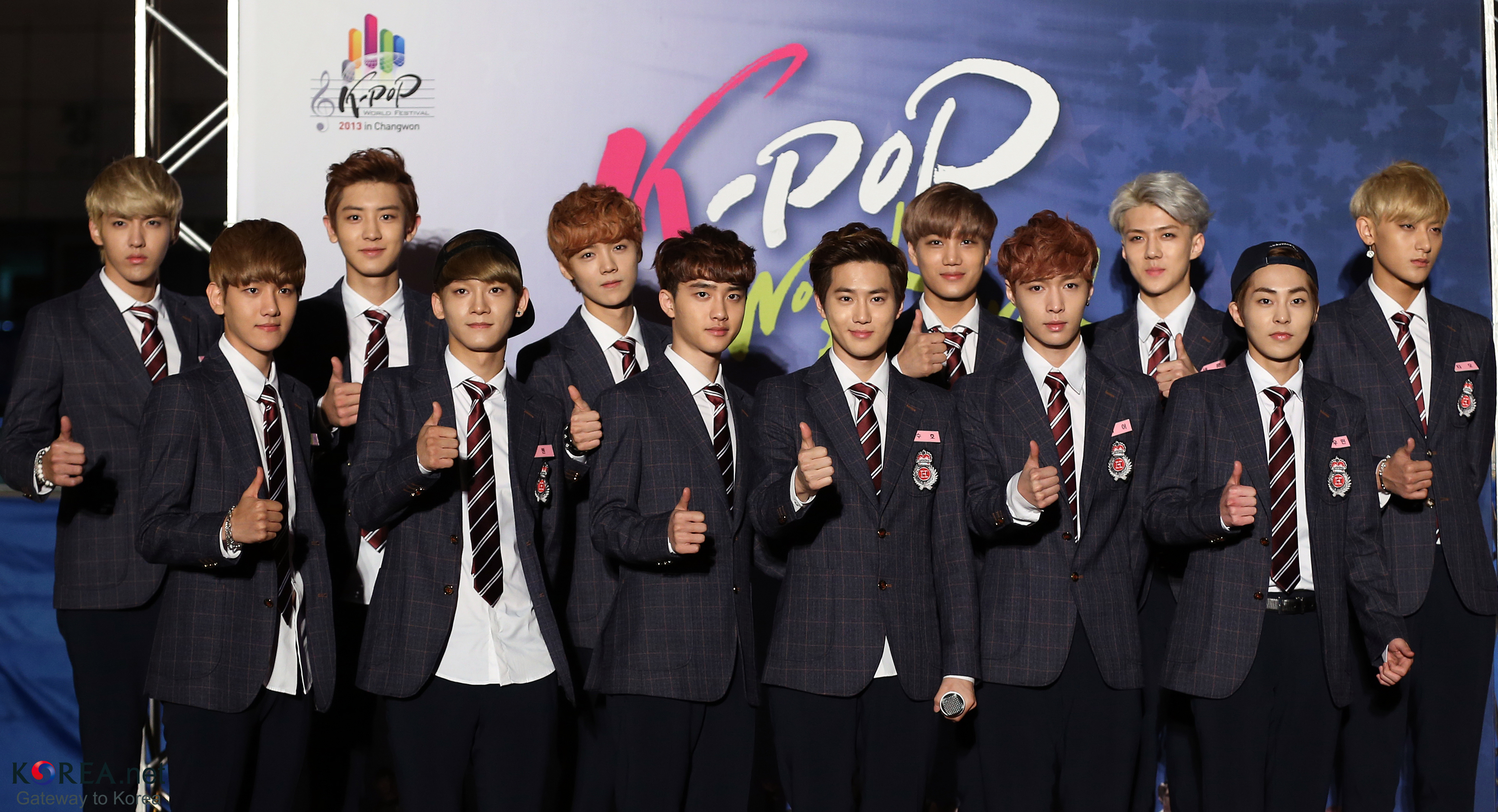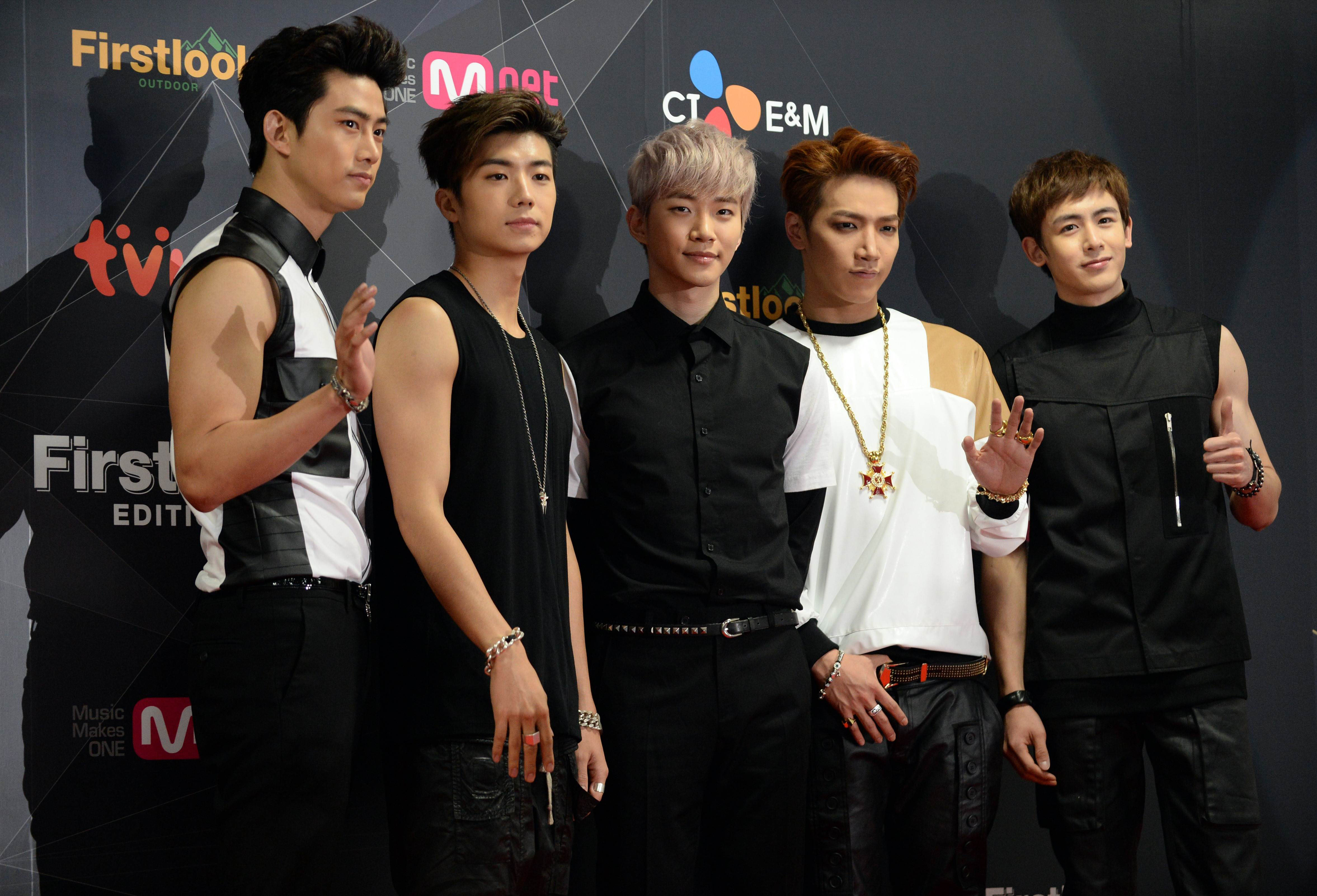The world of K-pop, with its dazzling performances and catchy tunes, has truly taken over the globe. We see this immense popularity everywhere, from the record-breaking achievements of groups like BTS, a global sensation that has captivated the world by consistently breaking records and setting new benchmarks in the music industry, to the significant buzz around new cultural touchstones like 'Kpop Demon Hunters,' which launched globally on June 20, 2025, and has since generated significant online interest. This widespread affection for K-pop, however, brings with it a very intense spotlight, a rather bright one that can sometimes cast long shadows.
It's a vibrant, very fast-paced industry, where young talents work incredibly hard to reach the top. Groups like TXT, Stray Kids, ATEEZ, Big Bang, and Monsta X, who were references for the creators of 'Kpop Demon Hunters' when designing their characters, show the incredible dedication and effort involved. The journey to becoming a beloved idol, or even a group like Saja Boys, who reached #1 on US Spotify on July 4 after their appearance in the global Netflix hit movie 'Kpop Demon Hunters,' is filled with rigorous training and constant public attention.
Yet, behind the bright lights and loud cheers, there are often immense pressures that many people might not see. This article looks at the very real challenges faced by some K-pop idols, and how these pressures can sometimes lead to incredibly sad outcomes, prompting important conversations about mental well-being and support within the entertainment world. So, it's about understanding the whole picture, really.
Table of Contents
- The Intense World of K-Pop Stardom
- Pressures and Expectations on Idols
- The Impact of Global Fame
- How Fans Can Help
- Common Questions About Idol Well-Being
- Moving Forward with Care
The Intense World of K-Pop Stardom
Becoming a K-pop idol means entering a world of very high stakes and incredible competition. Young people, some just teenagers, commit years of their lives to training, hoping to debut. This path, you know, is incredibly demanding, requiring dedication that few other careers ask for. They learn singing, dancing, rapping, and even different languages, all while living under strict rules, often far from their families. It's a rather tough road, that.
The success of groups mentioned in 'My text,' like BTS and the fictional Saja Boys from 'Kpop Demon Hunters,' shows the pinnacle of this industry. Ahn Hyo Seop, for instance, surprised fans with a gift and returned to being Jinwoo from 'Kpop Demon Hunters' on July 1, uploading a short video clip on his social media covering something. This kind of interaction, while delightful for fans, also shows the constant connection and expectation placed upon these public figures. There's little room for personal life, really, when you are that famous.
The industry, which we are a leader in for international K-pop and Korean culture, pushes for perfection. Every performance, every public appearance, every social media post is watched and judged. This level of observation can be, quite frankly, overwhelming for anyone, let alone young individuals still figuring out who they are. It's a rather unique environment, this one.
Pressures and Expectations on Idols
The life of a K-pop idol is often portrayed as glamorous, full of adoring fans and exciting opportunities. However, beneath the surface, there's a heavy weight of expectation. These young performers are not just artists; they are, in a way, products, representing their companies, their groups, and even their country. This can lead to an enormous amount of stress, sometimes unseen by the public.
The Grueling Training Period
Before even debuting, aspiring idols go through years of intense training, often called a "trainee period." This can last for many years, sometimes even a decade, with no guarantee of success. They train for hours every day, perfecting their craft, maintaining strict diets, and often living in dorms with other trainees. It's a rather disciplined life, a bit like a sports team preparing for the Olympics, just with music and dance instead.
During this time, they face constant evaluations, with the possibility of being cut at any moment. This environment, you know, creates immense pressure to always be at their best, to always improve. The competition is fierce, as many hopefuls chase a limited number of spots in new groups. It's a very challenging start, that.
Constant Public Scrutiny
Once an idol debuts, the scrutiny only increases. Every aspect of their life, from their appearance to their relationships, is subject to public opinion. Social media, like Spotify, the world’s leading audio streaming platform, which launched its highly anticipated 2024 wrapped campaign, celebrating fans and artists, amplifies this. Fans and anti-fans alike can comment, criticize, and speculate, sometimes relentlessly. This constant observation can feel like living in a glass house, where privacy is nearly non-existent.
The pressure to maintain a perfect image is immense. Idols are often expected to be role models, always polite, always happy, and never making mistakes. Any perceived misstep can lead to widespread criticism, sometimes turning into hateful comments. This kind of intense public gaze, it's almost, very hard to escape, isn't it?
Maintaining physical appearance is also a big part of the job. Idols often adhere to very strict diets and intense exercise routines to meet beauty standards. This can take a toll on their physical and mental well-being over time. It's a rather demanding aspect of their career, you know.
Mental Health Support and Awareness
Given these pressures, mental health support is incredibly important for idols. Historically, there might have been a stigma around discussing mental health in South Korea, and particularly in the entertainment industry. However, there's a growing awareness now, which is a good thing. Companies are, in some respects, starting to provide more resources, like counseling services, though there's still a long way to go, apparently.
The entertainment industry, as a whole, is beginning to recognize the need for better support systems. This shift is vital, as it helps create a safer environment for artists to express their feelings and seek help without fear of judgment. It's a very important conversation, this one, about supporting those who bring so much joy to others.
The Impact of Global Fame
The global reach of K-pop, as seen with the success of 'Kpop Demon Hunters' and its associated groups like Saja Boys, amplifies both the rewards and the challenges. When a group becomes a global sensation, the fan base expands exponentially, but so does the pressure. They travel constantly, perform tirelessly, and manage a schedule that would exhaust most people. This constant movement and lack of rest can truly wear a person down, you know.
The cultural differences in how fame is perceived and how artists are treated also play a role. While Western celebrities might have more personal freedom, K-pop idols often face stricter rules about their public image and personal lives. This cultural expectation, you know, adds another layer of complexity to their already demanding careers. It's a rather unique situation, that.
The intense devotion of fans, while largely positive, can sometimes become overwhelming. Some fans, in rare cases, might cross boundaries, leading to issues like stalking or excessive demands. This kind of behavior, while not representative of the majority, adds to the stress and sense of being constantly watched. It's a fine line, really, between adoration and intrusion.
How Fans Can Help
Fans play a very big role in the K-pop world, and their actions can make a real difference in supporting idols' well-being. One important way is to promote a positive and respectful fan culture. This means focusing on supporting the music and performances, rather than speculating about personal lives or spreading rumors. It's about showing love, not judgment, basically.
Another helpful approach is to encourage healthy boundaries. Understanding that idols are people who need privacy and rest is crucial. Sending messages of support and kindness, rather than demanding constant updates or criticizing their choices, helps create a more nurturing environment. This kind of mindful fan behavior, you know, can really help reduce some of the pressure on these performers.
Also, supporting mental health initiatives within the K-pop community can make a difference. Many fan groups now organize campaigns to raise awareness and support for mental well-being. This collective effort, you know, helps to destigmatize seeking help and shows idols that their well-being is valued. Learn more about supporting artists on our site.
Common Questions About Idol Well-Being
People often wonder about the specific challenges K-pop idols face. Here are some common questions and thoughts about their experiences.
What are the biggest pressures K-pop idols face?
The biggest pressures often come from the intense training, the constant public scrutiny, and the very high expectations for perfection. Idols are expected to maintain an unblemished image, perform flawlessly, and manage incredibly demanding schedules. There's also the pressure to always be thin and beautiful, which can be quite tough, really.
How do K-pop companies support their artists' mental health?
Support for mental health is something that, in some respects, is getting better. Some companies now offer counseling services, regular check-ins, and even breaks for their artists. However, the level of support can vary greatly between different agencies. It's a rather evolving area, this one, with more attention being paid now.
What can fans do to promote a healthier environment for idols?
Fans can help by promoting respectful online behavior, avoiding intrusive actions, and focusing on positive support for the music and performances. Encouraging healthy boundaries and participating in mental health awareness campaigns are also very helpful ways to contribute. Basically, it's about being a kind and understanding fan, you know.
Moving Forward with Care
The conversations around the challenges faced by K-pop idols are incredibly important. By understanding the immense pressures and expectations placed upon these young performers, we can collectively work towards a more supportive and caring environment. It's about recognizing their humanity, really, beyond the dazzling stage lights.
Supporting mental well-being in the K-pop industry means a joint effort from companies, fans, and the wider public. It involves creating systems where idols feel safe to seek help and where their personal well-being is prioritized. This kind of collective care, you know, can make a significant difference for the people who bring so much joy to so many around the world.
As the K-pop world continues to grow, with new shows and artists constantly emerging, like the groups referenced in 'Kpop Demon Hunters,' the need for empathy and support only becomes more clear. It's a call for everyone to remember the person behind the performer, and to offer kindness. You can find more resources on supporting artist well-being by visiting this page.
For additional information on mental health and entertainment, you might find resources from organizations like the World Health Organization helpful. They offer a lot of good information on general mental health topics, which is rather relevant here, too.



